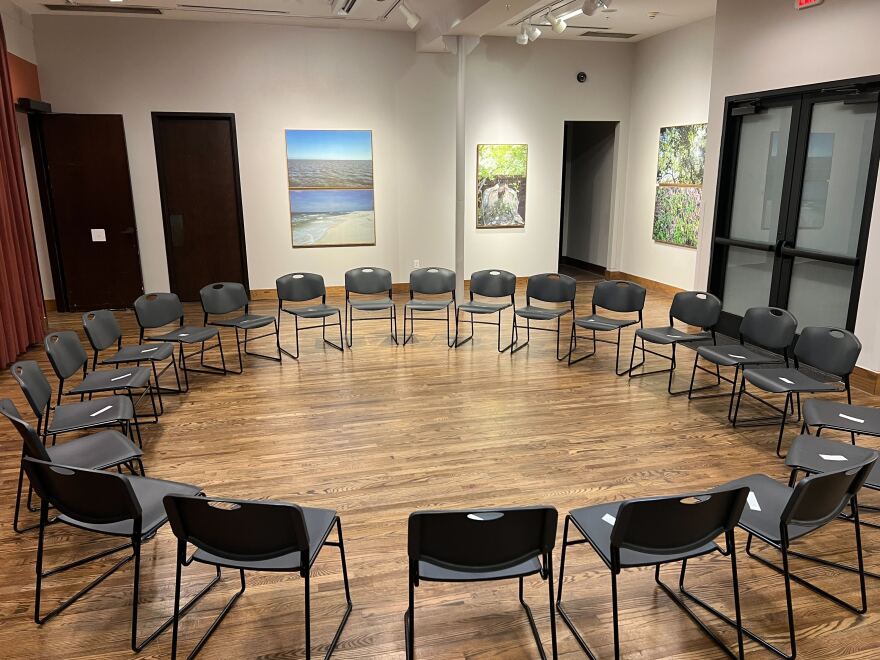De’Ane Kennedy wasn’t surprised by November’s election results, but many of her peers were left feeling defeated.
“I’ve always kind of felt like, this is the America that I know it to be,” she said.
Kennedy is the founder of the Dallas Black Queer Collective. As she watched her friends and loved ones struggle with the stress and uncertainty of the incoming Trump administration, she decided to create a space where Black women and queer individuals can process their feelings and find solace.
Her monthly community check-ins at the Oak Cliff Cultural Center are designed as a safe space for Black people to express their emotions without fear of judgment.
Attendees give each other advice and comfort throughout the evening.
“I do think like, I have to be strong within the community,” Kennedy said. “Especially when you're hosting a circle like that where everyone feels like, ‘I don't know what to do’ or ‘I'm kind of ready to give up’ or ‘I'm not ready to give, but I don't got no idea so you got to tell me what to do.’”
She sees hope as a lifeline in these moments.
“You got to give the people hope. You have to,” she said. “And when no one else can, it’s on you.”

For many participants, the conversations are raw and deeply personal. Kennedy recalls hearing about friends and loved ones whose relationships were strained by political divides. About 9 in 10 Black women supported President-elect Donald Trump's opponent, Vice President Kamala Harris, last year.
Dallas resident Dani Carty said the check-in helped them process feelings of anger and betrayal.
“These spaces have allowed me and other Black queer folk to feel very held in a time full of uncertainty and a whole lot of misinformation,” Carty said. “It’s nice to be in a room and just hear people talk and be like, OK, at least not all hope is lost.”
The concept of healing circles isn’t new. Linda Jones, a writing coach in Dallas, has been holding similar gatherings for more than two decades. Her sessions initially focused on hair discrimination faced by Black women, but they have since evolved to address bigger moments of collective grief, like the 2016 police killing of Philando Castile.
Jones believes Black women carry an invisible burden during these emotional times.
“We tend to repress or suppress the things that we may want to say but we're so concerned about others and how they feel,” Jones said. “Or we're busy taking care of others that we will put how we feel or the pain that we might be experienced to the side and that is not healthy.”
Jones believes the need for these spaces is especially critical during a time where Black women are facing challenges like health care disparities. A survey by KFF revealed that 21% of Black women feel they’ve been treated unfairly by healthcare providers due to their race or ethnicity—more than Black men or White women.
“Those are cases for making sure that there are healing circles,” Jones said.

For Kennedy, leading these spaces is deeply personal. While she’s no stranger to activism, this is her first-time organizing healing spaces during such a politically contentious time.
“I feel like it is through talking and communication and sharing stories and sharing collective woes and sharing collective joy that so many oppressed people have been able to make it,” Kennedy said.
As the political landscape shifts, Kennedy remains committed to providing these spaces, believing that collective healing will hold up her community over the next four years.
Zara Amaechi is KERA’s Marjorie Welch Fitts Louis fellow covering race and social justice. Got a tip? Email Zara at zamaechi@kera.org. You can follow her on X @amaechizara.
KERA News is made possible through the generosity of our members. If you find this reporting valuable, consider making a tax-deductible gift today. Thank you.




